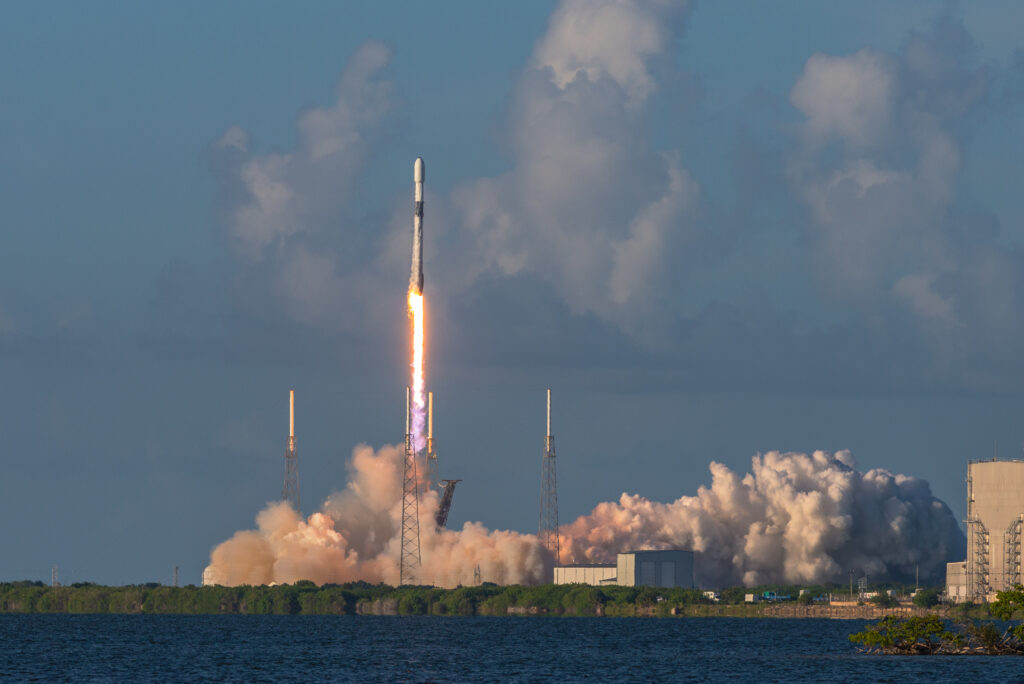The Peninsula
[Policy Brief] US-South Korea Relations in Space: A New Era for Partnership

This policy brief offers a concise summary and set of recommendations from a longer paper, featured in the Fall/Winter issue of KEI’s flagship journal Korea Policy. The full paper can be found here and the entire Korea Policy issue here.
Executive Summary
Although the US-ROK alliance is critical for the security of the Indo-Pacific region, the close bilateral military relationship has not historically extended into outer space. Policies and regulations dating to the 1970s limited space collaboration between the United States and South Korea. However, recent policy and regulatory changes have removed some of the restraints. As the two countries seek to strengthen their alliance, they should view space as a promising avenue to fortify existing security relationships and create new commercial and civil ties. The US and South Korean space programs are undergoing expansive and ambitious changes; as such, the two countries should prioritize enhanced space collaboration.
Background
South Korea has laid out a vision that extends well into the 2040s with its Fourth Space Development Promotion Basic Plan, issued in 2022. The plan lays out designs to double government investment in space, develop military space capabilities, achieve space exploration targets of the Moon and Mars landers, and cultivate the domestic private space industry. It also establishes a dedicated space agency to execute the national space strategy, the Korean AeroSpace Agency (KASA), which will play a crucial role in developing US-South Korea space partnerships. Having KASA at the helm of South Korean space efforts will also mean space is integrated into other government initiatives and incorporates a whole-of-government approach.
Meanwhile, the US government is in the early stages of fundamental shifts in its approach to space operations. Instead of relying on a few large satellites for national security missions—as the US Department of Defense (DOD) has done historically—the DOD is transitioning to larger numbers of proliferated satellites across a diversity of orbits. This change should create more opportunities for partnerships with allies. In August 2024, the United States launched a Norwegian spacecraft that hosted a US national security payload, which was the first time the DOD launched an operational payload on a foreign satellite. As the DOD pursues larger constellations of satellites, allies with mature space programs may have opportunities to contribute and fill some of these constellations. Moreover, the US government is also seeking to leverage commercial space to a greater extent, which could lead to more government-government, government-industry, and industry-industry partnerships between the two countries.
Policy Recommendations and Implementation
– The United States and South Korea should focus their space partnerships on security, commercial, research, and space governance. Hosted payloads may be an attractive option for collaboration, including for missions of mutual interest, such as missile warning and tracking. Space situational awareness (SSA) is also essential for long-term national security and is an area with existing momentum from recent information-sharing agreements. The United States should support South Korea in developing independent SSA capabilities.
– South Korea has worked toward the development of its domestic Korean Positioning System (KPS) as part of the third and fourth basic plans. KPS and the US Global Positioning System (GPS) should continue to be designed for interoperability as the accuracy of both countries’ position, navigation, and timing systems improves when used in conjunction.
– With both countries working toward long-term space exploration goals, the United States and South Korea should coordinate to accelerate their collective progress. This includes working together on missions to the Moon, Mars, and Lagrange points.
– Space-based data products can be an overlooked area for cooperation but are essential for studying weather prediction, climate change, and space environment modeling. South Korea should join available international coalitions for scientific research in these fields, and the United States and South Korea should continue related personnel and data exchanges.
– Both countries should work together to identify each other’s areas of strength within space and relevant scientific and technological fields to determine how to best leverage expertise and maximize the potential benefits of bilateral collaboration.
– The United States should lead in strengthening the US-South Korea-Japan trilateral relationship, which is strategically important for regional stability, by focusing on space as an area of shared interest. The groundwork was laid in the August 2023 trilateral meeting at Camp David, which explicitly mentioned space.
Conclusion
The US-ROK alliance is becoming more strategically important as regional tensions mount. Despite the limited nature of the bilateral space partnership in the past, momentum is gaining as the United States and South Korea articulate bold visions for their goals in space and as the two countries engage in more dialogue, personnel, expertise, and information exchanges, and formal agreements for collaboration. However, these strengthening ties should not be taken for granted, nor are they without challenges. The potential strategic benefits of bilateral cooperation in space should make this area a priority for the alliance.
Katherine Melbourne is a senior member of the technical staff in the Center for Space Policy and Strategy at The Aerospace Corporation and Sam Wilson is the Systems Director for the Center for Space Policy and Strategy at The Aerospace Corporation. The views expressed here are the authors’ alone.
Photo from Wikimedia Commons.
KEI is registered under the FARA as an agent of the Korea Institute for International Economic Policy, a public corporation established by the government of the Republic of Korea. Additional information is available at the Department of Justice, Washington, D.C.
